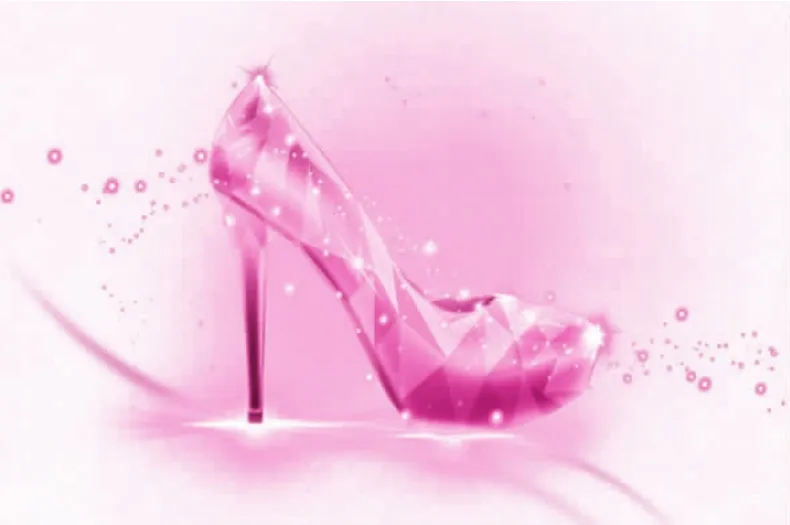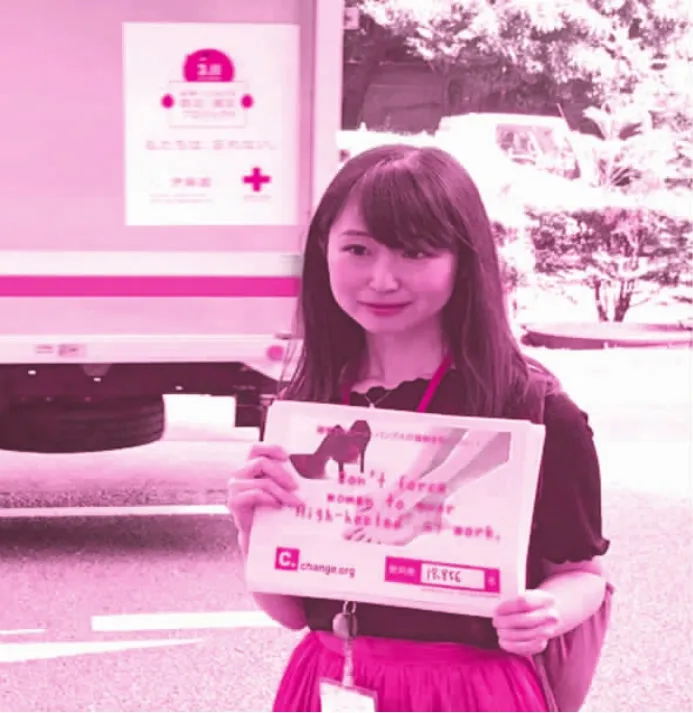Say no to high heels rules
海词积累
1.signature/'sɪɡnətʃə(r)/n.签名
2.hashtag/'hæʃtæɡ/n.主题标签
3.blister/'blɪstə(r)/n.水疱
4.petition/pə'tɪʃn/n.请愿书

Should women be forced to wear high heels for their jobs?Yumi Ishikawa,a 32-year-old actress from Japan,says no.And she’s collected thesignaturesof almost 30,000 people who agree with her.
Ms Ishikawa has a part-time job which requires her to stand in high heels for many hours.One day,Ms Ishikawa noticed the shoes of a man who worked with her.She realized that her job would be far easier if she was allowed to wear comfortable shoes like his.After work,she posted that idea on the social media site Twitter.Her post got a huge response—67,000 people“liked” the post.That led Ms Ishikawa to create thehashtagKuToo.
Wearing high heels for a long time can lead to injuries far more serious than just blisters or foot pain.High heels can cause ankle problems and back pain and change the shape of leg muscles.
That doesn’t mean high heels are bad.Many women like the look of high heels and don’t mind if the shoes are uncomfortable.But there’s a difference between choosing to wear something and being forced to.One Japanese website reported thatabout60%ofJapanese women are forced to wear high heels at work.
Ms Ishikawa created apetition—a request which other people sign to show their support.The petition explained the problems caused by high heels.It also pointed out that it was unfair that women were often required to wear high heels,but men were not.Her petition quickly got thousands of supporters.
On June 3,Ms Ishikawa gave a copy of her petition to Japan’s government.The government said that it had no plans to change the rules.Japan already has a law which says that men and women must be treated equally at work.But the law doesn’t cover rules about what people wear.
Ms Ishikawa’s petition now has nearly 30,000 signatures,and the number is still going up.

Reading Check
What’s your opinion towards this news?Are you for or against the content of the petition?
Language Study
Sentences for writing
1.if作为连词,意为“要是;假如”时,引导条件状语从句。
She realized that her job would be far easier if she was allowed to wear comfortable shoes like his.她意识到,如果允许她穿像他那样舒适的鞋子,她的工作会容易得多。
【仿写】如果你考试不及格,你会让你父母失望的。
2.far+形容词比较级,表示程度,意为“……得多”。
Wearing high heels for a long time can lead to injuries far more serious than just blisters or foot pain.长时间穿着高跟鞋会导致比水疱或脚痛严重得多的伤害。
【仿写】在这一文化中,我们真正的选择比我们愿意想象的要有限得多。

